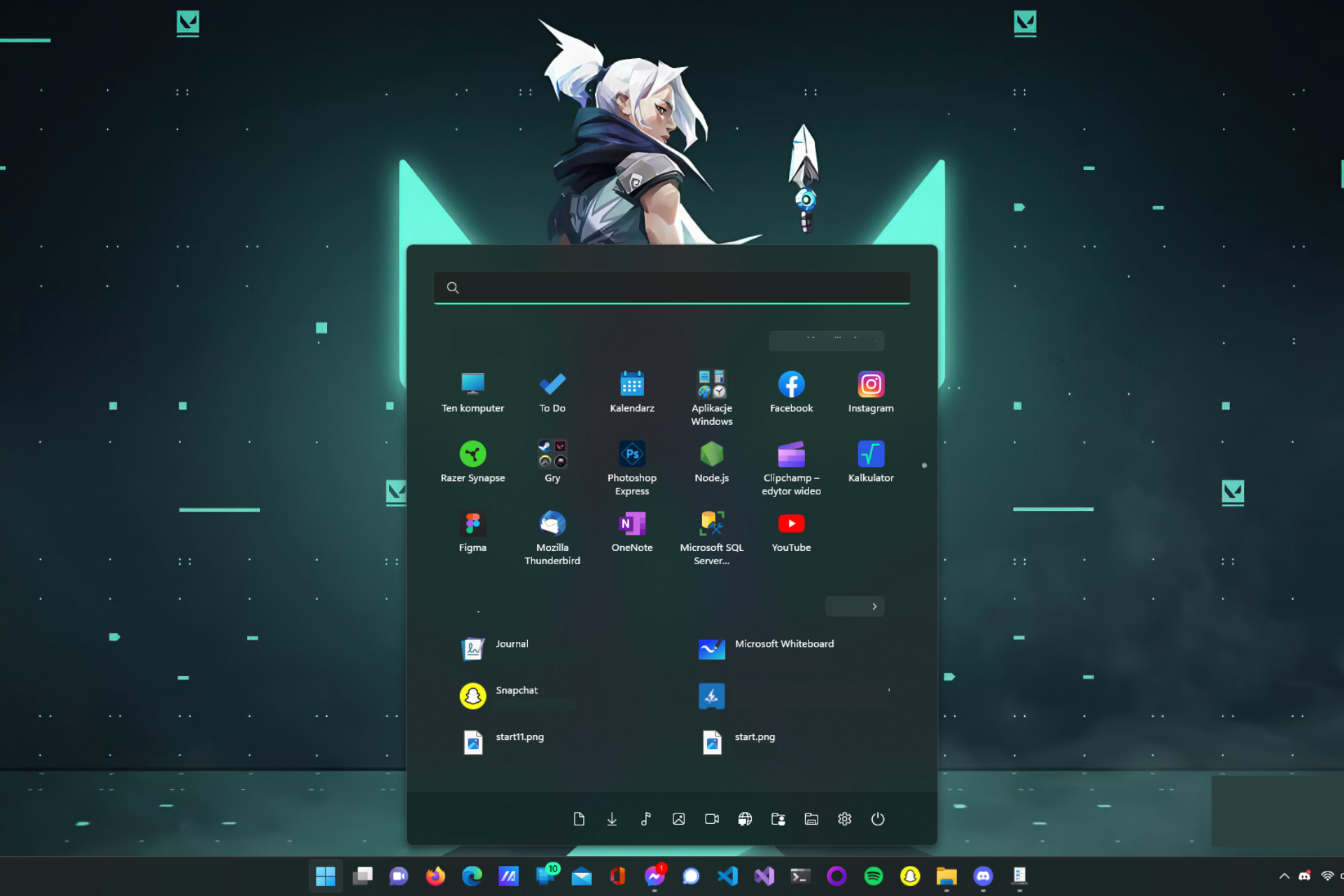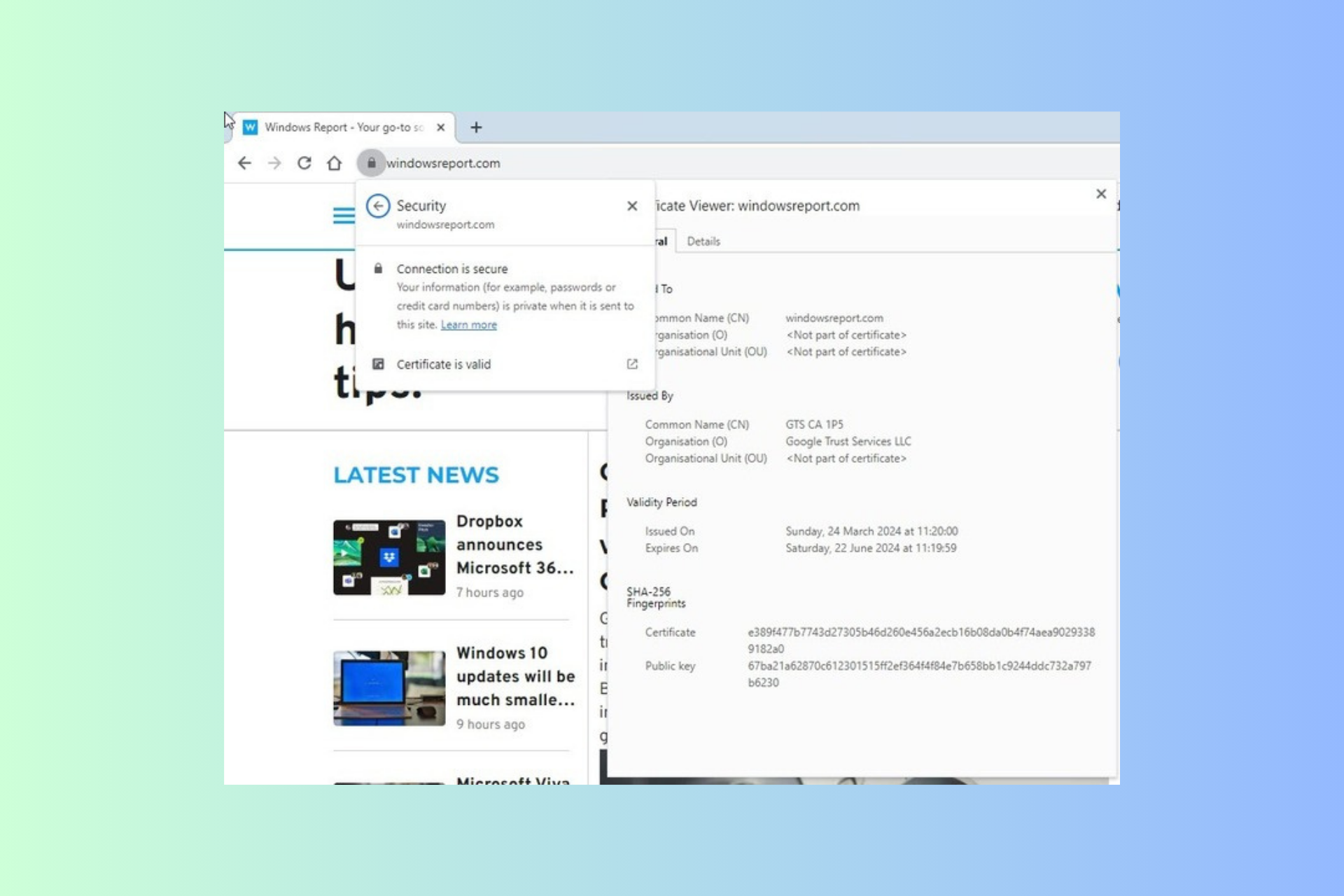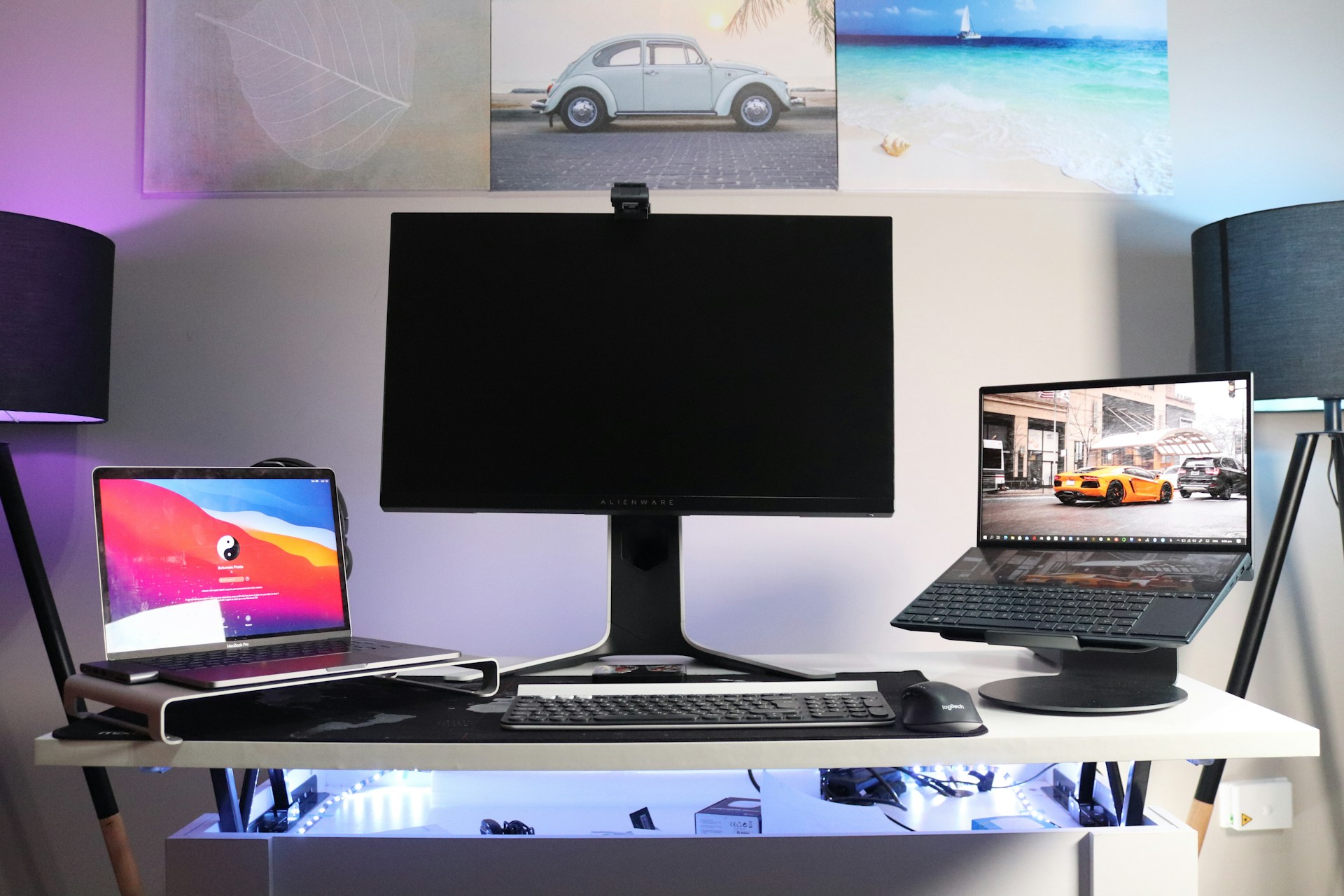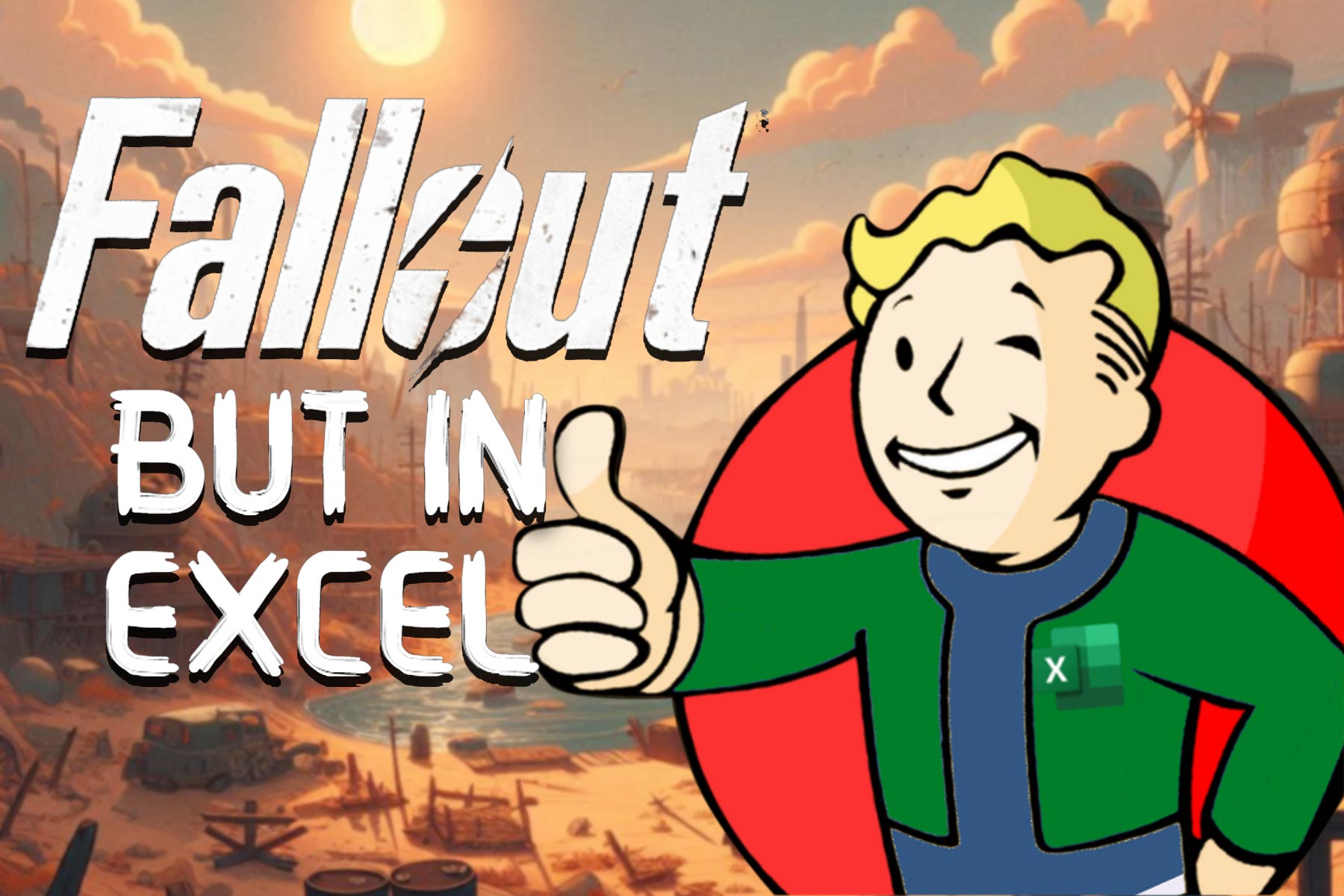Microsoft shouldn’t underestimate Google Stadia, and neither should you
9 min. read
Published on
Read our disclosure page to find out how can you help Windows Report sustain the editorial team Read more
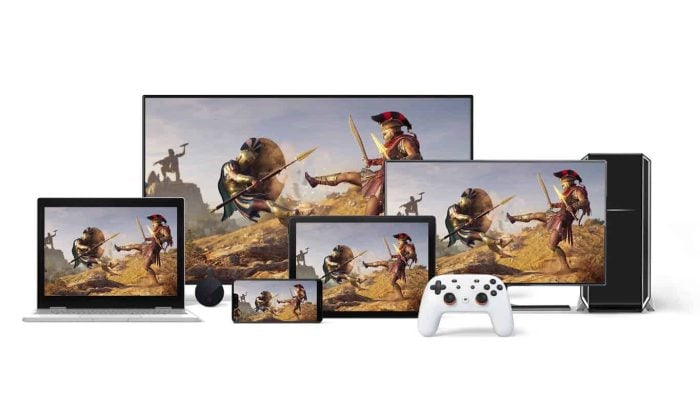
As E3 2019 is right around the corner, Google tried to get ahead of everyone else by opening up pre-orders for the Stadia Founder’s Edition yesterday. The game streaming service will launch in November 14 in 14 markets, and early adopters will be able to play Destiny 2 and all of its content on the next-gen gaming platform right at launch
Stadia is Google’s first big foray into gaming, and the company really faces an uphill battle. However, with years of experience with Google Play games, YouTube, and other cloud services, Google definitely has the chops to succeed in this new game streaming revolution.
For now, though, Stadia and other game streaming services may only be targeting a niche market as the bandwidth requirements are quite high. To access Stadia, you’ll need at least 10Mbps down to enjoy a 720p stream at 60 FPS, 20Mbps for 1080p with HDR and 5.1 surround sound, and 35Mbps to reach 4K quality. PC Gamer recently did the math, and it looks like playing Stadia games in 4K will use up to 1TB of data in 65 hours, which is a lot.
It’s still early days for game streaming technology
To be clear, Stadia won’t be the first game streaming service on the market this year: There are already competent solutions such as Shadow, NVIDIA Geforce Now, or even Sony’s PlayStation Now. However, Google wants to make Stadia available on any devices including smartphones, and the service will also have deep synergies with YouTube, which should become a great marketing tool for Stadia.
As Microsoft, Amazon, and even Verizon are also planning to launch their own game streaming services, Google couldn’t really afford not to be in this market. It’s still early days for game streaming: despite launching in 2015 (with an open beta starting in 2014), Sony recently revealed that PlayStation Now currently has 700,000 subscribers worldwide, with existing capacity investments only supporting a 5 million subscriber base.
Sony is taking this new competition from Google very seriously, and the upcoming launch of Stadia is actually one of the reasons why the Japanese company recently announced a cloud partnership with Microsoft. So far, Microsoft has been emphasizing the much superior stable of content that it will be able to offer on its own xCloud streaming service, but we still don’t know how the software giant plans to sell its Stadia competitor to Xbox fans.
Stadia will have a unique business model
If many people expected Stadia to be a subscription service a la Netflix, the service’s business model is slightly more complex and interesting than that. This year, early adopters will have to ways to try Stadia:
- By subscribing to Stadia Pro ($9.99/month), which will provide access to Destiny 2 and a catalog of older games playable in 4K at 60FPS with 5.1 Surround sound.
- By purchasing the $129 Stadia Founder’s Edition, which includes a Chromecast Ultra to access the service on a TV, Google’s Stadia controller, and three months of subscription to Stadia Pro.

It’s still not clear what other games will be included in the Stadia Pro subscription except Destiny 2, but other AAA games such as Assassin’s Creed: Odyssey will be available for purchase separately. Yes, Stadia will have its own digital game store, and Google explained yesterday that all purchased games will remain playable once a Stadia Pro subscription has ended.
Next year, Google also plans to make Stadia free for everyone with “Stadia Base,” a free tier allowing gamers to play all purchased games in the Stadia Store at 1080p 60FPS with stereo sound. This was one of the big surprises from yesterday’s Stadia Connect event, and this will pretty much make Stadia an open platform where everyone can buy games and stream them on a TV with a Chromecast Ultra, a PC with Google Chrome, or mobile devices (Google will only support its latest Pixel devices at launch).
Stadia is the first next-gen gaming platform
If we often used “next-gen” to qualify the Xbox One and PlayStation 4 consoles, these devices aren’t really next gen. The truth is, there are still way too many games on consoles that are locked to 30FPS, even on the more powerful Xbox One X and PlayStation 4 Pro consoles. 4K was probably the wrong target for this console generation, as most gamers probably prefer to play at a solid 60FPS at 1080p than at 4K with a frustrating 30FPS cap.
Current consoles also still using slow hard drives, and game updates can take forever if you have a slow Internet connection. With Stadia, all your games will be running in the cloud, no installation or updates required, so you’ll be able to play your games instantly. More interesting, Stadia will make it possible to start playing on a device and then pick up where you left off on another device, which is pretty much Xbox Play Anywhere pushed to the next level.
In terms of hardware specs, Stadia will be the first true next-gen gaming platform with more than 10 teraflops of computing power (the Xbox One X only delivers six teraflops), making it possible to play all Stadia games in 4K at 60 FPS. Stadia will also offer the ability to play games in local multiplayer, and the platform will also support crossplay with other platforms. Yesterday, we learned that Destiny 2, a launch title for Stadia, will also offer cross-save support with PC, Xbox One, and PS4.
On paper, it looks like Microsoft’s Project xCloud will offer an “inferior” gaming experience compared to Google Stadia. For now, Microsoft is just putting existing Xbox One consoles in server blades, and it looks like the software giant is currently using the ageing Xbox One S console for xCloud, and not the more powerful Xbox One X, as seen in the video below.
“We’ve architected a new customizable blade that can host the component parts of multiple Xbox One consoles, as well as the associated infrastructure supporting it. We will scale those custom blades in datacenters across Azure regions over time,” explained Kareem Choudhry, Corporate Vice President, Gaming Cloud at Microsoft. Using existing Xbox consoles to build the Project xCloud infrastructure will make the service compatible with all existing Xbox One games, but the problem with that approach is that games running on xCloud will likely run exactly like their console versions, with 30FPS caps and 900p resolution here and there.
Stadia will have some pretty good games at launch
With Nintendo succeeding to get many developers to port their games on the relatively underpowered Nintendo Switch, it wasn’t clear if Google would be able to do the same with Stadia, which is a Linux-based platform. However, Google exceeded our expectations by announcing several recent AAA games for Stadia such as Borderlands 3 and Metro: Exodus, two games that are timed-exclusives on the Epic Games Store on PC. You can add Mortal Kombat 11 and Rage 2 to the list of recent games, in addition to the upcoming Wolfenstein: Young Blood and the fighting game Samurai Showdown.
When you add Destiny 2 and all of its content to the mix, it’s clear that Stadia will have a better selection of games than what Epic Games currently has on its Epic Games Store on PC. For Mac or Linux users, Stadia should be a great solution for playing games that may never be released on these platforms.

Of course, there are still some big omissions such as Minecraft, Fortnite, PUBG, Rocket League, Call of Duty, or GTA V, but Google already managed to get many publishers on board including Bethesda, Ubisoft, EA, Capcom, and Rockstar Games. Google said that they will frequently share updates about new games coming to the Stadia Store and the Stadia Pro catalog, and you can expect regular “Stadia Connect” events just like Microsoft has its own Inside Xbox monthly livestreams.
Microsoft may need a free tier for Project xCloud
We still don’t know what business model Microsoft is planning for Project xCloud, but the Redmond giant may really need an answer to the free “Stadia Base” tier coming next year. As a matter of fact, maybe the upcoming launch of Project xCloud is a good opportunity for Microsoft to revamp its various Xbox subscription services.
A regular point of criticism I’ve seen during this console generation is that online multiplayer on consoles still requires an online subscription. On Xbox One, Microsoft also requires an Xbox Live Gold subscription to play free-to-play games like Fortnite, something that Sony doesn’t require on the PlayStation 4 (online multiplayer was also free on PlayStation 3). This may well be one of the reasons why the PS4 managed to outsell Microsoft’s Xbox One by quite a wide margin during this console generation.
If Microsoft’s Project xCloud service requires an additional Xbox Live Gold subscription to play multiplayer games, I think this would be a huge mistake. I’d say it’s time for Microsoft to finally make Xbox Live multiplayer free for everyone, as there’s no reason to make Xbox users pay for something that’s now free on other platforms, including Windows 10, and of course Google Stadia.
Microsoft is expected to open public trials for Project xCloud later this year, and we hope to hear more details during the Xbox media briefing this Sunday, June 9 at E3. We all remember the disastrous Xbox One launch, with Microsoft asking $500 for the OG Xbox One with its bundled Kinect, while in reality the console was slightly underpowered compared to the cheaper PlayStation 4. Microsoft may have a superior global cloud infrastucture with Azure, as well as more content to offer on xCloud compared to the competition, but this won’t matter if the service isn’t as accessible as Google Stadia and its free tier launching next year.
Do you think Project xCloud could be dead on arrival if there’s no free option to stream your already purchased games, like on Google Stadia? Sound off in the comments below.


